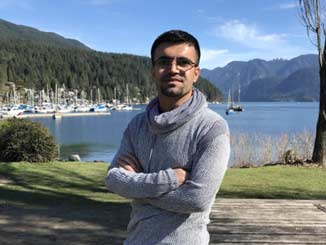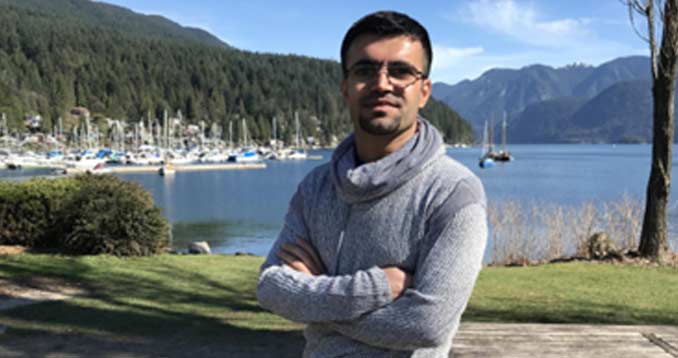

My parents intended to protect me by hiding the details of my birth, which was at some point during the Iraq-Iran War between 1980 and 1988.
The other day, my friend Zoma mentioned that her birthday is on Nov. 17. I told her it was the same day as mine. She was delighted and suggested celebrating together. “I’m not interested in celebrating,” I answered. Friends and acquaintances occasionally ask me what I would like to do for my birthday, but how do I explain that I have never enjoyed it?
The reason I have never celebrated my birthday is that I am not sure where and when was I born. According to my Iraqi passport, I was born on Nov. 17, 1984, but my parents registered me several years later. This was to protect me by not disclosing the date and place of my birth, which was during the Iran-Iraq War between 1980 and 1988. My father escaped from the Iraqi regime and the rest of the family moved from one place to another because we lived in the epicentre of the wars. We were constantly looking for a safe shelter to protect us in Iraq, and could not approach government offices as most of the administrations were occupied by military personnel.
The Kurds tried to hide men’s identities in order to avoid them being forced to join the Iraqi army as conscripts. Also, the Iraqi government did not favour recording the births of Kurds, in order to hide the real number of the Kurdish population. As a result, it remains uncertain of where I was born.
As if to further deepen my doubt, my cousins would often joke that my parents were not my real parents. They claimed I was abandoned by my real parents when I was a toddler because they did not have enough food for me. In reality, this was a very common scenario during the wars.
To have clarity, I asked my parents when and where I was born, but they were not sure. They only remembered that I was born during the war.
My mother told me, “You were five months old when the Iraqi Ba’ath Party murdered Abdulkareem.” Abdulkareem was her middle brother, a Peshmerga (Kurdish military) man who fought against Saddam Hussein’s regime. However, my father remembered that I was one year and four months old when my mother’s second brother Hassan, also a Peshmerga soldier, died stepping on an Iranian-made landmine near the border.
But I found out my mother lost part of her memory after the death of her brothers. My uncle Hussein, her one surviving brother, tells me a different story of my birth, and he is known for his excellent memory. He says, “You were born one day after Abdulkareem was killed.”
Ultimately, they remembered only that I was born sometime during the war and between the deaths of my uncles.
My story is not unusual. Without accurate information, many are recorded as being “born” on July 1. We lost not only our birthdays, but our land, culture and language — in a word, our identity. It was not our fight, yet it was fought on our land. Forces clashed, and innocents paid the price.
Consequently, we were granted negative labels. Our neighbors started to call us “Mountain Turks,” uttering slogans like “A good Kurd is a dead Kurd.” Some even refused to admit our existence. Despite all this, most Kurds continued to tolerate others, knowing these were just the opinions of the ruling elite.
This is why, after all that transpired, I am not sure I can celebrate with Zoma on Nov. 17. I am happy my friend is celebrating her birthday with joy, yearning for another year full of adventures, but I am still trapped. Both in the history I witnessed and the one I see these days, where parts of my country are still under fire, fighting to survive.
Republished from The Toronto Star. Diary Marif is an Iraqi Kurdish journalist and non-fiction writer based in Vancouver. Twitter: @diary_khalid

Leave a Reply